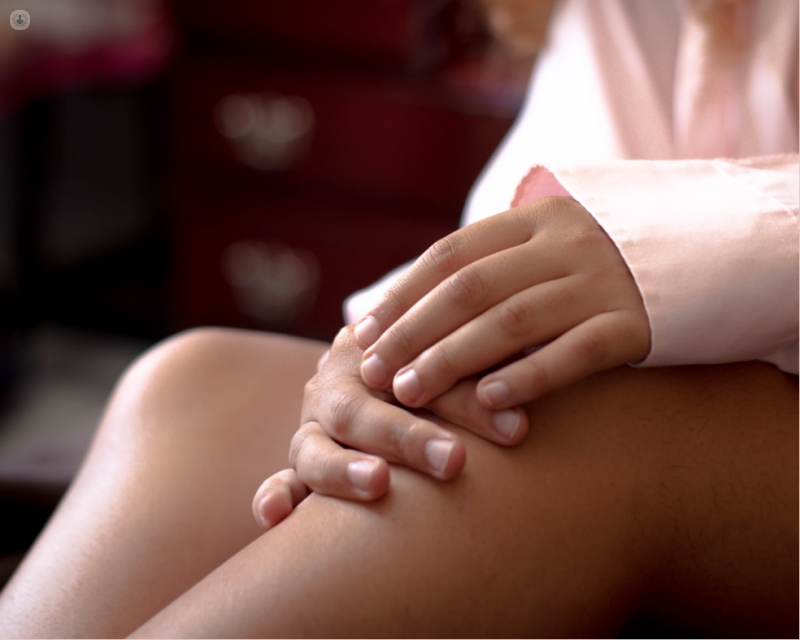Types of injections for joint pain
Escrito por:Joint injections are a popular option when it comes to treating inflammatory joint conditions.

We spoke with the highly-experienced orthopaedic hip and knee surgeon, Mr Rohit Jain, to find out when exactly joint injections would be needed. He takes us through the different types of injections, how they help and how long their effects last for.
When are joint injections definitely needed?
Steroids can be used as a conservative treatment for a range of inflammatory conditions in tendons and joints and as well as for inflamed and entrapped nerves. Common conditions which usually respond to the steroid injections are Osteoarthritis, Rheumatoid arthritis, Gout, Joint impingement, Golfer’s elbow, Tennis elbow, De Quervain's tenosynovitis, Plantar fasciitis, Morton’s neuroma, Carpal tunnel syndrome.
Other substances that are often effective include:
Hyaluronic acid
Hyaluronic acid is a naturally occurring substance that the body produces. It attracts water and thus it functions to keep tissues lubricated and moist. It's usually present in the joint fluid. It has no animal proteins and is unlikely to cause any allergic reactions.
PRP (platelet-rich plasma)
PRP is the third injection option. It primarily uses the healing power of your platelets to improve the health of the existing articular cartilage. The blood has got three types of cells, part of these cells responsible for healing are the platelets. We spin the blood in a machine which separates the platelet-rich plasma, and then it is injected into the joint. This type of treatment is called Orthobiologics, in which we are actually using the biological power of the body to heal the body.
nSTRIDE APS injections
The fourth form of injection is nSTRIDE also called Autologous Protein Solution. This injection has anti-inflammatory cytokines and anabolic growth factors prepared from the patient’s own blood. These recreate a healthy balance of good proteins in the joint which help to improve the health of the existing articular cartilage.
How long do joint injections last for?
Steroid injections have both local anaesthetic and steroids combined together. Local anaesthetic starts acting in a few minutes but lasts a couple hours and steroids can take three to ten days to start showing an appreciable improvement which can last from six weeks to six months. It's quite variable, depending on how bad the knee is inflamed. Some patients don't respond to it. By and large, on an average, it can last from six weeks to six months.
Hyaluronic acid generally last for about 3 months. If you need more than three injections a year, it's highly likely it's just not working.
As for PRP and nSTRIDE, approximately 80% of patients respond to this treatment. recent research shows after having an nStride injection, 70% of patients report pain relief for almost three years, and with just the PRP injection, the effect can last almost 12 months.
Joint injections are just a part of the whole treatment.
To treat painful joints, we recommend chatting with a leading orthopaedic hip and knee surgeon such as Mr Rohit Jain. Visit his Top Doctors profile for information on appointment availability.


